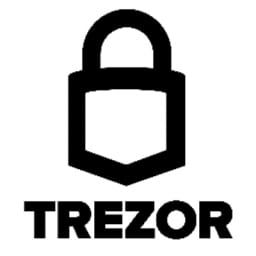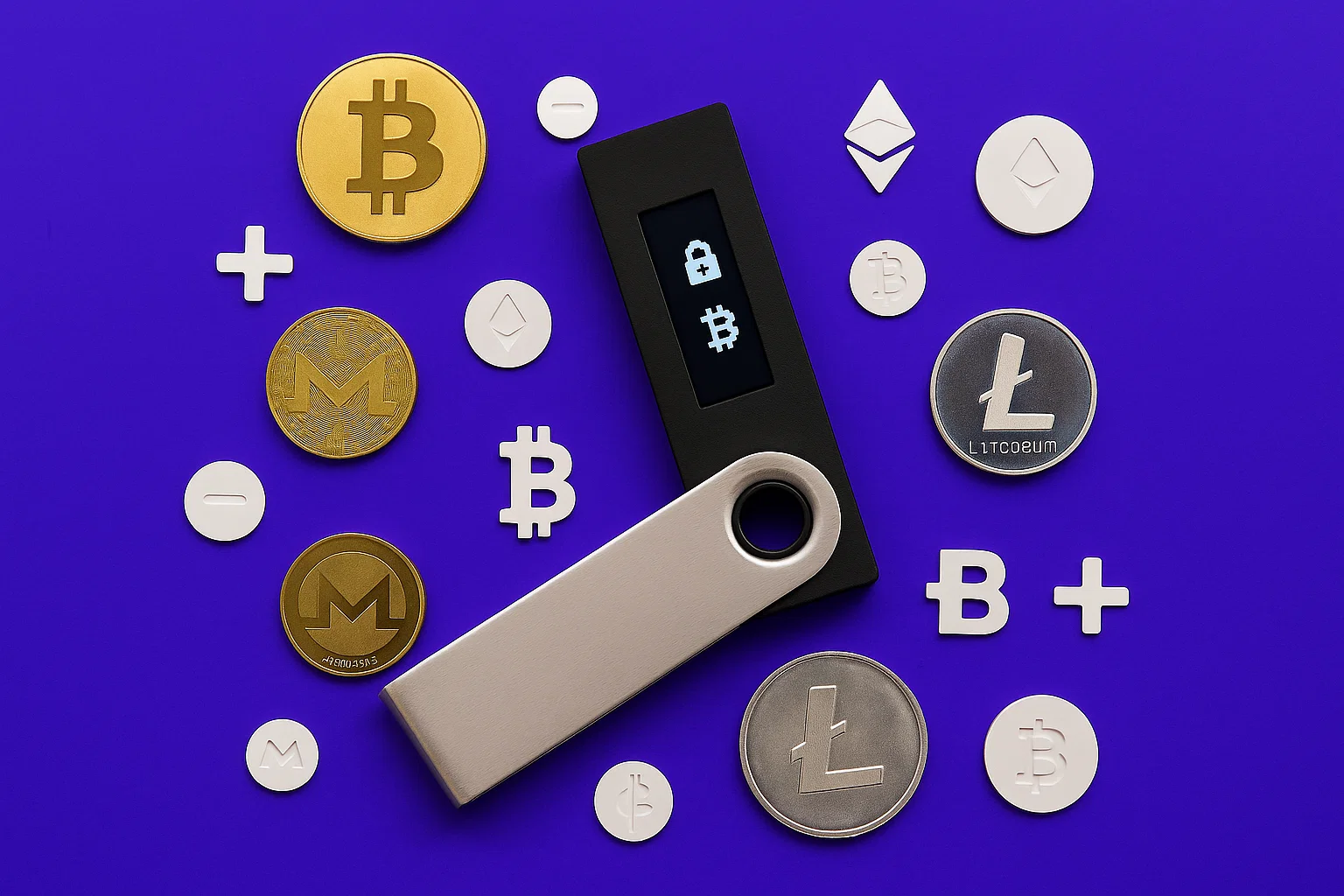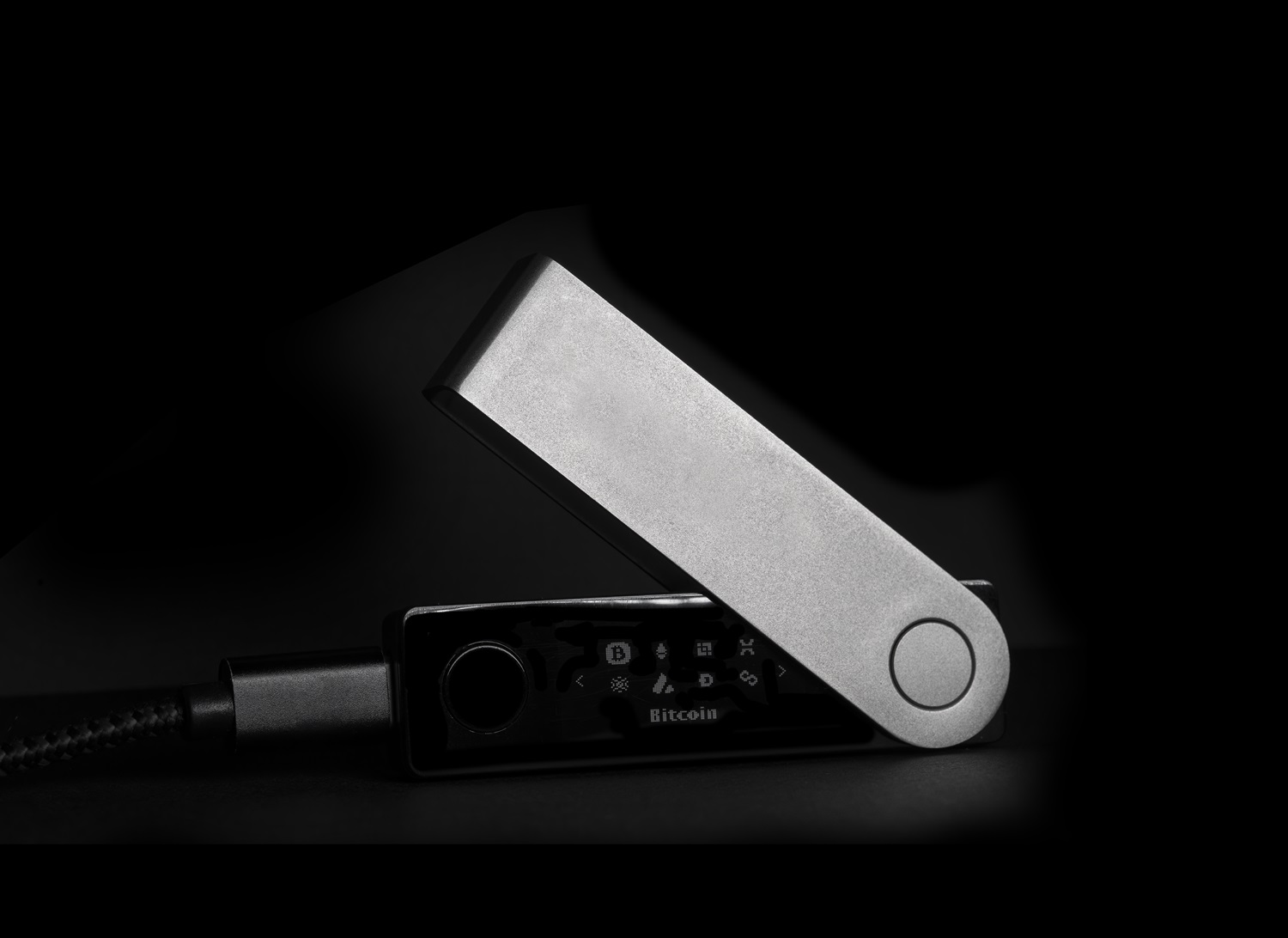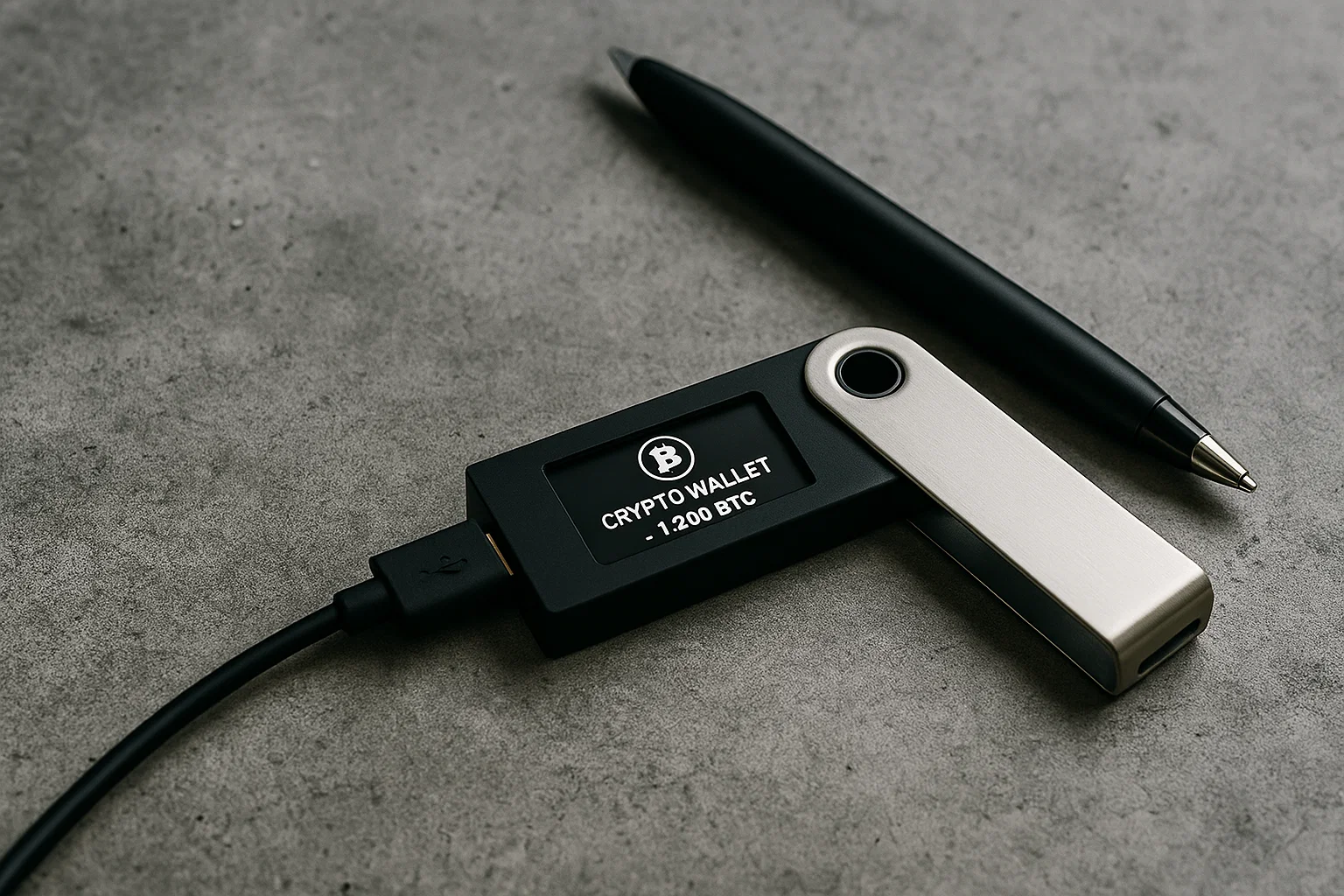The collapse of crypto giants like FTX delivered a harsh lesson: if you don’t hold your private keys, you don’t truly own your crypto assets.
When an exchange freezes withdrawals or goes bankrupt, balances can vanish in an instant. That’s the core risk of outsourcing custody.
Hardware wallets—often called cold wallets—exist to remove that risk. These small devices keep your keys completely offline and approve transactions on the device itself, out of reach of online threats.
The wallet shows the details—asset, amount, destination—so you can approve transactions on its own screBy generating and storing keys in a sealed environment with enhanced security, a hardware wallet turns exchange IOUs into assets you actually control and is designed to prevent hacks that target computers and software wallets.
Today, the landscape is broad: air-gapped, QR-only bricks for maximum security; Bluetooth models for mobile convenience; tap-to-sign NFC cards; and open-source units for tinkerers. Different shapes, same goal—keep keys offline and make every signature transparent.
What matters isn’t the logo but the fundamentals: the security architecture (chip and firmware), what the device shows before you sign, and your recovery options—seed phrases, Shamir splits, or seedless cards. Then weigh everyday usability: connectivity, screen, updates, and ecosystem support. Focus on those, and you move from counterparty risk to true digital sovereignty.
Best Crypto Hardware Wallets for2025
 Best for: Deep-cold, air-gapped storage
Best for: Deep-cold, air-gapped storage
NGRAVE ZERO
The ZERO never touches cables, Wi-Fi, or Bluetooth—everything is QR-only. EAL7 secure element, a large touchscreen for clean reviews, and a rugged metal backup make it a vault for meaningful holdings. Not the cheapest or fastest to use, but as an offline fortress, it’s hard to beat.
Pros & Cons
Pros
- Air-gapped, QR-only signing (no cables/radio)
- EAL7 secure element with strong tamper resistance
- Large touchscreen—clear transaction review
- Metal backup system designed for longevity
Cons
- QR workflows are slower than cable/Bluetooth
- Premium pricing vs. entry-level wallets
 Best for: Open-source verifiability
Best for: Open-source verifiability
Trezor (Safe 5 / Model T / Model One)
Open-source firmware, clean Trezor Suite, and advanced options like Shamir Backup. Safe 5 brings a modern touchscreen and hardened internals; Model T remains a proven touch device; Model One is the value classic. Same philosophy across the range: clear on-device prompts and a mature ecosystem.
Pros & Cons
Pros
- Fully open-source firmware & audits possible
- Trezor Suite is clean, beginner-friendly
- Shamir Backup (SLIP-39) for added resilience
- Multiple models/price points to match needs
Cons
- No Bluetooth; mobile workflows rely on cables/OTG
- Some assets/use-cases need third-party bridges
 Best for: Broad ecosystem & mobile use
Best for: Broad ecosystem & mobile use
Ledger (Stax / Nano X / Nano S Plus)
Ledger Live covers a wide range of coins and NFTs with a polished UX. Nano X adds Bluetooth for smooth mobile flows; Stax brings a premium curved E-Ink touchscreen and wireless charging; Nano S Plus keeps costs down while handling essentials.
Pros & Cons
Pros
- Wide coin/NFT coverage via Ledger Live
- Mobile-friendly (Bluetooth on Nano X)
- Premium Stax experience (E-Ink, wireless charging)
Cons
- Closed-source components; less transparent than Trezor
- Premium models (Stax) are pricey
How Do Crypto Hardware Wallets Work

A hardware wallet is a small cold wallet that protects one thing: your private key. Your coins stay on the blockchain; the device guards the credential that proves they’re yours and keeps it offline for enhanced security. On first setup, it generates the key inside a secure chip and never lets it touch your computer or smartphone.
When you transfer crypto, you build the transaction in a companion or third-party app (e.g., Ledger Live, Coinbase Wallet, or the Tangem app on iOS/Android). The app sends an unsigned request to the device. The wallet shows the details—asset, amount, destination—so you can approve transactions on its own screen.
It then signs inside the secure element and returns only a signature for broadcasting. The key never leaves the device, whether you connect by USB, Bluetooth, NFC, or QR.
This design blocks most online threats and helps prevent hacks: even if your computer has malware, the attacker can’t extract the key, and the device’s screen forces a final human check.
If the unit is stolen, PIN attempt limits help deter brute force attacks, and some models add haptic feedback or biometric authentication to reduce mistakes.
During setup you also get recovery options—a 12–24-word seed phrase, Shamir shares, or multi-card backups—so if the device is lost or breaks, you restore on a new wallet and regain access without anyone’s permission. That’s the core of modern crypto security with strong usability.
Who Are Crypto Hardware Wallets For?
While software-based "hot wallets" (like mobile apps or browser extensions) are convenient for daily trading, their constant internet connection makes them vulnerable.
Hardware wallets, or "cold storage," are built for security above all else.
You should strongly consider getting one if you fall into any of these categories:
- Long-Term Investors: If you're "HODLing" for the long run, a hardware wallet is the gold standard for securing assets you don't plan to trade frequently.
- Anyone Holding a Significant Amount: Ask yourself: would you be devastated if you lost your crypto? If the answer is yes, the one-time cost of a hardware wallet (typically $50-$200) is a small price to pay for peace of mind.
- Security-Conscious Users: If you want to eliminate the risk of exchange hacks or online theft and take full, sovereign control over your digital assets, a hardware wallet is non-negotiable.
- Institutional and High-Value Investors: For businesses or individuals managing large portfolios, the robust, offline security of a hardware wallet is an essential part of any risk management strategy.
How to Choose a Hardware Wallet

Start with Your Routine
If you rarely move funds, an air-gapped cold wallet that signs via QR codes leans toward maximum security and slows you down—in a good way. If you make frequent transactions from a smartphone (iOS or Android), Bluetooth or NFC can streamline the flow without exposing the key.
Match the Wallet to Your Assets
Bitcoin-only stacks benefit from PSBT and clean multisig. Mixed portfolios (ETH, tokens, NFTs) need wide supported coins, clear contract decoding, and smooth app integrations (e.g., dapps, Coinbase Wallet, or the Tangem app). Pick what makes everyday usability easy.
Read The Screen Before You Sign
Good devices show exactly what you’re approving—asset, amount, destination—on their own display. Bigger, clearer screens (bonus points for haptic feedback) reduce mistakes when you approve transactions or transfer crypto.
Check The Security Model
Most wallets lock keys in a secure element (look for EAL5+/6+/7).
That’s one layer of crypto security. Also weigh firmware: open source offers broad scrutiny; closed source often pairs with strict, verified updates. Both can be safe when done well and properly updated to withstand online threats and help prevent hacks.
Backups are Everything
Choose recovery options you’ll actually maintain—12–24-word seed phrase, Shamir shares, or seedless card sets—and run a test restore so you don’t risk losing access if the device is lost or stolen.
A good wallet should last 5–10 years; favor vendors with clear updates, steady support, and features you’ll use rather than a spec sheet you won’t.
What Actually Keeps Your Crypto Safe
Secure elements & certifications
Most cold wallets lock your private key inside a tamper-resistant secure element. Labels like EAL5+/6+/7 signal lab-tested resistance to physical extraction and brute force attacks.
That’s enhanced security, but the bigger picture matters: key isolation, a bootloader that verifies firmware updates, and cryptographically signed code checked on-device.
Open vs closed firmware
Open source lets the community audit how things work. Closed source often pairs with stricter certifications and locked update paths. Both can be safe when done well; choose the trust model you prefer and read release notes, not just marketing features.
Air-gapped vs USB/Bluetooth/NFC
Air-gapped wallets move data via QR codes—no cables, no radios—which shrinks the remote attack surface and helps prevent hacks. USB is simple and fast.
Bluetooth and NFC are convenient on a smartphone (iOS/Android) and don’t expose the key if implemented correctly. In every case, only transaction data and signatures travel while you approve transactions on the device. Pick what you’ll use correctly during frequent transactions—that’s real usability.
Backups & “what you see is what you sign.”
Your recovery options matter most: a 12–24-word seed phrase stored on metal, Shamir splits, or seedless card sets so a stolen or failed device doesn’t mean losing access. Always test a restore.
On every transfer, read the device screen: asset, amount, destination, and decoded contract actions.
Bigger, clearer screens—and even haptic feedback or optional biometric authentication on some other hardware wallets—make mistakes less likely. Prioritize security first; then worry about supported coins. That’s practical crypto security.
Best Crypto Hardware Wallets: In Dept Review

NGRAVE ZERO — Deep-dive (maximum isolation)
NGRAVE ZERO is built for maximum security. It never touches a cable or radio—everything moves by scannable QR codes—so the private key stays sealed inside the device and out of reach of online threats.
The big touchscreen makes it easy to read what you’re about to sign and approve transactions on the device itself; amounts, addresses, and contract actions aren’t hiding behind hashes.
Backup is treated like a first-class job. The metal kit gives you durable recovery options you can verify during a drill, and the overall security features favor caution over convenience. In practice, the QR workflow adds a couple of steps versus USB or Bluetooth, but that ceremony reduces mistakes and helps prevent hacks caused by rushing.
On coverage, ZERO handles the supported coins most people care about—BTC, ETH, and popular token ecosystems—via its offline signing flow, so you can protect core crypto assets without giving up clarity. Compared with other hardware wallets, it’s a little larger and priced as a premium vault, which is exactly how it shines: use it as deep cold storage, then keep a lighter wallet for frequent transactions.
Trezor (Safe 5 / Model T / Model One) — Deep-dive (open and transparent)
Trezor’s vibe is simple: transparency plus ergonomics. The firmware is open source, Trezor Suite is clean, and the devices make you approve transactions on their own screens to avoid blind signing.
The Safe 5 adds a modern touchscreen with subtle haptic feedback and hardened internals for enhanced security; the Model T is a proven touch device; the Model One is the budget classic that still covers the essentials.
Backups are flexible recovery options. You can use a standard seed phrase or split it with Shamir shares, which lowers the chance of losing access if one piece goes missing. If a unit is stolen, PIN attempt limits and optional passphrase protection help deter brute force attacks.
For everyday usability, Suite handles sends, receives, and firmware—smooth enough for frequent transactions yet deliberate enough for cold wallets. Across the lineup you’ll find broad supported coins and good third-party wallet compatibility, so you can transfer crypto without wrestling the workflow.
As with all other hardware wallets, capabilities vary by model (screen, integrations, certain assets). Match the device to your portfolio and how often you sign.
If you want clear prompts, strong defaults against online threats, and a mature ecosystem that helps prevent hacks caused by rushing or guesswork, Trezor is an easy recommendation.
Ledger (Stax / Nano X / Nano S Plus) — Deep-dive (polished apps, mobile focus)
Ledger’s strength is the ecosystem. Ledger Live makes setup, portfolio views, and routine sends feel simple, with broad supported coins and NFT coverage out of the box.
The hardware keeps keys in a secure element and offline; you approve transactions on-device, which helps guard against online threats when you transfer crypto.
Pick the model that fits your flow. Ledger Nano S Plus is the value pick for USB-only setups. Ledger Nano X adds Bluetooth for smooth smartphone workflows on iOS and Android. Stax layers on a roomy E-Ink touchscreen and wireless charging for a premium feel—nice if you sign often and want maximum usability.
Ledger’s firmware is closed source, but updates ship through a strict, verified pipeline. If you prefer convenience over ceremony, this lineup fits well—just spend a minute on settings: enable clear on-device prompts, avoid blind signing, and run a test restore so you know your recovery options work before moving serious crypto assets.
Compared with other hardware wallets, Ledger leans on software polish and everyday features while keeping the core promise intact: private keys stay on the device, not the computer or phone.
Other Options to Consider
Setup, OPSEC & Maintenance
Buy safely & check for tampering
Order from the brand’s official store or an authorized reseller (same rule whether it’s a Trezor, a Tangem card, a Ledger Nano/Ledger Nano X, or other hardware wallets).
Inspect the packaging; nothing should be re-shrink-wrapped or pre-initialized. Download companion apps (Ledger Live, Trezor Suite, Tangem app, Coinbase Wallet) only from official stores to avoid online threats and fakes.
If a device ships with a printed seed, it’s compromised—return it.
First boot & key generation
Set up in private. Let the wallet generate keys and the seed on its own screen—never on a computer or smartphone. Write the words by hand; no photos or cloud notes. Verify a receive address on-device, transfer a tiny amount, approve transactions on the device, and confirm it arrives before you transfer crypto in size.
If your model offers biometric authentication or haptic feedback, enable them if they improve usability without weakening security.
Backups that actually work
Pick recovery options you’ll maintain: a 12–24-word seed phrase on metal, Shamir shares (document the threshold), or seedless card sets stored separately. This protects you from losing access if the device is lost or stolen. Label clearly, keep instructions (no secrets) for a future you, and practice one dry-run restore.
Metal backups & geo-separation (and inheritance)
Paper burns; ink fades.
Etch the seed or each share into metal and store copies in different, boring places. If someone may need access later, document an inheritance plan—who gets which piece and how to restore—without revealing the secret itself.
Safe firmware updates
Update only via official apps or the device’s menu. Read notes, keep power stable, and never enter your seed during an update.
Signed firmware updates protect against tampering. After updating, re-verify a receive address and send a tiny test. Check release notes for changes to supported coins or security features.
Anti-phishing habits
Use pinned bookmarks for downloads; search ads are a minefield. Watch for look-alike domains and fake extensions. On every send, read the device screen—don’t rely on the PC/phone UI. These habits help prevent hacks during frequent transactions and dapp use on iOS/Android.
For smart-contract interactions, avoid “blind signing” toggles if possible; prefer wallets that decode what you’re approving in plain language.
Recovery drills & routine maintenance
Once a year, restore from your backup to a spare or reset unit and move a tiny amount to confirm it works.
Quarterly, confirm you can locate each backup, skim vendor security notes, and make sure the setup still fits your life (new phone, travel, growing crypto assets). Good OPSEC is quiet, repeatable, and ready for the bad day.
Troubleshooting & Recovery Scenarios

Lost device
Stay calm—the keys aren’t on the phone or laptop.
If your PIN/passphrase was strong, the lost unit is just a brick.
Buy a new, compatible wallet and restore from your backup (seed phrase, Shamir shares, or card set).
Once you’ve confirmed balances, move funds to a fresh wallet with a brand-new backup to invalidate whatever was on the lost deviceStay calm—your keys aren’t on the phone or laptop. With a strong PIN/passphrase, the unit is a brick against casual brute force attacks.
Buy a new, compatible wallet and restore from your recovery options (seed, Shamir, or card set). After you confirm balances, transfer crypto to a fresh wallet with a brand-new backup to invalidate the old device.
Lost or partial backup (seed/shares/cards)
If the device still works, move funds to a new wallet now and create a complete backup. For Shamir, meet the threshold (e.g., 2-of-3) to recover.
For card sets, use the remaining quorum to restore, then rotate to a new set. A partial BIP39 seed without the device usually means losing access—act while you can still sign.
Broken screen or buttons
Don’t “blind sign.” Restore your backup onto another BIP39-compatible device (e.g., Trezor, BitBox02, Ledger Nano/Ledger Nano X, or other hardware wallets) and verify addresses there. Replace/repair later—the priority is a readable screen so you can safely approve transactions.
Vendor shutdown / end-of-life
Your crypto assets live on the blockchain, not with the company. If you used standard backups (BIP39/Shamir), restore to another reputable wallet and continue.
If backups were proprietary, follow the final export tool promptly and migrate to an open standard. When switching, also confirm the new wallet’s supported coins.
Chain forks
Forks can duplicate balances and enable replay. Update software, read the vendor’s guidance, then “split” by moving funds on one chain to a fresh address before touching the other.
Always verify chain, asset, and destination on the device screen before you approve transactions.
Stuck firmware / failed update
Use the official app (iOS/Android) to enter bootloader/recovery mode and reinstall signed firmware.
Keep power stable and never type your seed during updates. If a wipe is required, reinstall, restore from your backup, and send a tiny test transfer before moving larger amounts.
New to Hardware Wallets?
What Is a Crypto Hardware Wallet?Frequently Asked Questions
Can a hardware wallet be hacked?
Nothing is perfectly unhackable, but a good device isolates your private key inside a tamper-resistant secure element and never exposes it. In the real world, most losses happen through phishing, blind-signing, malware on the PC, or bad backups. Verify details on the device screen, use a strong PIN/passphrase, and protect your recovery.
Ledger vs Trezor for beginners?
Both are solid. Ledger offers a polished app and smooth mobile flow (Bluetooth on Nano X); Trezor is open-source with a clear desktop suite and optional Shamir backup. Choose the trust model and workflow you’ll actually use—either can be safe when set up and backed up correctly.
Do I need multiple hardware wallets?
Not required, but smart. Many people keep a long-term “treasury” wallet and a smaller day-to-day wallet. Segmentation limits blast radius if something goes wrong and lets you keep convenience separate from deep-cold storage.
How do passphrases (the “25th word”) work?
A passphrase creates an extra, hidden wallet derived from your seed. It adds privacy and duress protection but has no reset—forget the passphrase and those funds are unrecoverable. Only use it if you can store/remember it reliably.
Can I use DeFi or NFTs with a hardware wallet?
Yes. You build the transaction in a companion or third-party wallet, then confirm on the device so the key stays offline. Prefer devices that decode contract calls into plain language, and periodically review/revoke token approvals.
What’s the safest way to travel with a hardware wallet?
Treat the device like a key, not a vault. Don’t carry the seed with it. Consider a small “travel wallet” with limited funds and leave the main treasury at home. A passphrase can add safety if the device is inspected or lost.
How long does a hardware wallet last?
Several years or more. Screens and batteries wear out before the cryptography does. If the device degrades or vendor support ends, migrate using your BIP39/Shamir backup to a new wallet and test with a small send.
Should I buy a used hardware wallet?
No. You can’t trust its history. Buy new from the official store or an authorized reseller—legit devices never arrive pre-initialized with a recovery phrase.
What if I forget my PIN?
Most devices wipe after several wrong attempts—that’s by design. Reset, restore from your seed (and passphrase if used), verify a receive address on-device, and you’re back in business.
Conclusion
Self-custody isn’t complicated—it’s a habit. A good hardware wallet keeps your private key offline, lets you sign transactions on the device, and gives you a backup you can trust years from now.
Pick the device that fits your routine—air-gapped and deliberate or mobile and fast—and set it up once, properly.
Do the basics well: buy from official channels, generate the seed on-device, store a durable backup in separate places, and run a quick recovery drill. Keep firmware current via official apps only, and make verification a reflex—check addresses and details on the device screen before you approve anything.
Whether you choose NGRAVE, Trezor, Ledger, or other hardware wallets, the goal is the same: turn exchange risk into personal control. There are affordable starter models for everyday use and premium vaults for long term storage.
And as designs evolve—from classic sticks to big E-Ink screens and even concepts like Ledger Flex—the fundamentals don’t change: keys stay offline, signatures happen on-device, and your backups are what make you truly sovereign.








